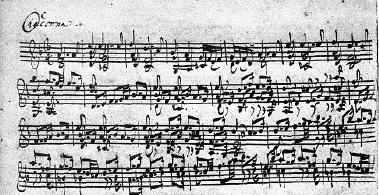
In memory of 11 September 2001.
In our youthful years we respect and despise without that art of nuance which constitutes the best thing we gain from life, and, as is only fair, we have to pay dearly for having assailed men, and things which Yes and No in such a fashion. Everything is so regulated that the worst of all tastes, the taste for the unconditional, is cruelly misused and made a fool of until a man learns to introduce a little art into his feelings and even to venture trying the artificial: as genuine artists do. The anger and reverence characteristic of youth seem to allow themselves no peace until they have falsified men and things in such a way that they can vent themselves on them --- youth as such is something that falsifies and deceives. Later, when the youthful soul, tormented by disappointments, finally turns suspiciously on itself, still hot and savage even in its suspicion and pangs of conscience: how angry it is with itself now, how it impatiently rends itself, how it takes revenge for its long self-delusion, as if it had blinded itself deliberately! During this transition one punishes oneself by distrusting one's feelings; one tortures one's enthusiasm with doubts, indeed one feels that even a good conscience is a danger, as though a good conscience were a screening of oneself and a sign that one's subtler honesty had grown weary; and above all one takes sides, takes sides on principle, against 'youth'. --- A decade later: and one grasps that all this too --- was still youth! (Nietszche, Beyond Good and Evil, 31)
Society is commonly too cheap. We meet at very short intervals, not having had time to acquire any new value for each other. We meet at meals three times a day, and give each other a new taste of that old musty cheese that we are. We have had to agree on a certain set of rules, called etiquette and politeness, to make this frequent meeting tolerable and that we need not come to open war. We meet at the post-office, and at the sociable, and about the fireside every night; we live thick and are in each other's way, and stumble over one another, and I think that we thus lose some respect for one another. Certainly less frequency would suffice for all important and hearty communications. (Henry David Thoreau on Solitude)
Die Rose, die Lile, die Taube, die Sonne,
Die liebt' ich einst alle in Liebeswonne.
Ich lieb' sie nicht mehr, ich liebe alleine
Die Kleine, die Feine, die Reine, die Eine;
Sie selber, aller Liebe Wonne,
Ist Rose und Lile und Taube und Sonne,
Ich liebe alleine
Die Kleine, die Feine, die Reine, die Eine.
Heinrich Heine
So I went for a walk in the ravine
I came upon an unbelievable scene
In a tiny creek there's a tiny boat
With a tiny man in a tiny coat
I said "Hey man, do you think you can help?"
He said "Of course I can - I'm an elf
We're not just fictional device
We sail ravines and give advice"
From The Present Tense Tureen
... She had always thought that if only people could communicate mind-to-mind, eliminating the ambiguities of language, then understanding would be perfect and ther'd be no more needless conflicts. Instead she had discovered that rather than magnifying differences between people, language might just as easily soften them, minimize them, smooth things over so that people could get along even thogh they really didn't understand each other. The illusion of comprehension allowed people to think they were more alike than they really were. Maybe language was better. (Orson Scott Card, from Xenocide)
As for evocation/communication, I don't find the first separate from the second, though subsidiary to it. The aim of any poet, or other artist, is first to make something; and it's impossible to make something out of words and not communicate. However, if a poem can be reduced to a prose sentence. there can't be much to it. James Schuyler
"It works like this. The first six months are the most fun. But there's a lot of adjustments to make too. Little ones. Big ones. One day you discover the relationship isn't about the relationship at all. It's about the fine tuning you keep having to do. Either the fine-tuning is fun or it isn't a relationship. That's when you either make it or break it." (David Gerrold from When H.A.R.L.I.E Was One)
They did not speak about their work. Mallory told outrageous stories and Dominique laughed like a child. They talked about nothing in particular, sentences that had meaning only in the sound of the voices, in the warm gaiety, in the ease of complete relaxation. They were simply four people who liked being there together. The walls rising in the darkness beyond the open door gave sanction to their rest, gave them the right to lightness, the building on which they had all worked together, the building that was like a low, audible harmony to the sound of their voices. Roark laughed as Dominique had never seen him laugh anywhere else, his mouth loose and young.They stayed there late into the night. Mallory poured coffee into a mongrel assortment of cracked cups. The odor of coffee met the odor of the new leaves outside. (Ayn Rand from The Fountainhead)
Perhaps the men of genius are the only true men. In all the history of the race there have been only a few thousand real men. And the rest of us --- what are we? Teachable animals. Without the help of the real man, we should have found out almost nothing at all. Almost all the ideas with which we are familiar could never have occurred to minds like ours. Plant the seeds there and they will grow; but our minds could never spontaneously have generated them. (Aldous Huxley from "Young Archimedes")

In memory of 11 September 2001.